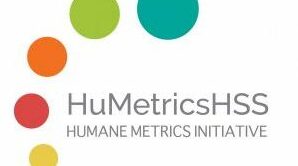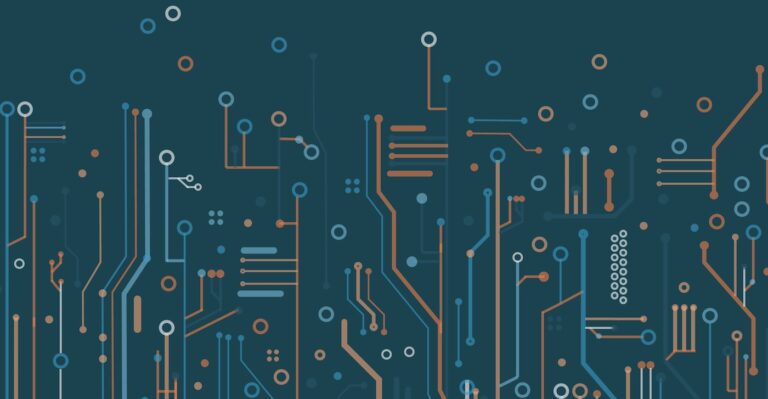SSRC’s Digital Culture Program supports activities that examine the role of technology in social science research, in the circulation and distribution of information, and in the shaping of cultural and political systems, serving the organization’s core aims to deepen and democratize knowledge.
Current activities for the Digital Culture Program include:
The Media & Democracy Program, a collaboration between the Anxieties of Democracy and Digital Culture programs, explores the historical context of and shifting relationship between media, technology, and democracy. Media & Democracy is supported by the John S. and James L. Knight Foundation, the Democracy Fund, and—through the Anxieties of Democracy program—the William and Flora Hewlett Foundation.
The Digital Literacy Initiative—supported through generous funding from Richard Witten, a member of the SSRC Visiting Committee—offers training for advanced graduate students affiliated with SSRC fellowship programs in innovative methods and digital tools to better prepare these emerging scholars for the opportunities and challenges afforded by new technology.
The Humane Metrics Initiative (HuMetricsHSS) examines the role of metrics in evaluating humanities and social science scholarship, rethinking the use of indicators to better recognize the breadth, variety, and impact of academic work. HuMetricsHSS is supported through a grant from the Andrew W. Mellon Foundation to project partner Michigan State University.
Current Digital Culture work was informed by an 18-month investigatory period funded generously by the Carnegie Corporation of New York, which supported a number of research workshops organized within the following categories, each designed to pinpoint pressing issues and possible points of intervention in the changing scholarly landscape.
Curating Knowledge Under Digital Conditions gathered representatives from the publishing world, scholarly societies, university administration, and archival institutions in order to discuss the principles, standards, and practices that should govern editorial curation and scholarly communication. From these meetings emerged questions on democratizing access while maintaining quality, expanding the definition of scholarship to include data curation itself, expanding publishing models and modes, and creating sustainable repositories for the archiving of born-digital sources.
Digital Social Science explored the use of large-scale data sets, access to proprietary data, and the ethics and practicalities of sharing data without infringing on intellectual property or human privacy rights, all while exposing new opportunities to use machine learning to better address issues of public concern through social science methods.
Transparency, Access, & Reliability examined models for and methodological questions on sharing scholarship to broader publics, increasing access to research, and ensuring confidence in research reliability.
Programs & Projects
Opportunities
Comprised of individuals working in academic and nonprofit academic–adjacent sectors, the Humane Metrics in the Humanities and Social Sciences (HuMetricsHSS) initiative facilitates the creation of locally relevant values-based frameworks that …
People
News & Events

HuMetricsHSS Initiative Announces 2021 Community Fellowship

HuMetricsHSS Initiative Receives $650,000 Mellon Grant
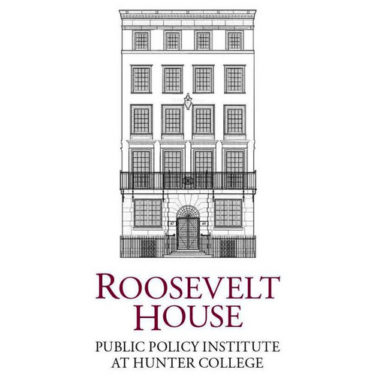
Social Science Knowledge and Its Future
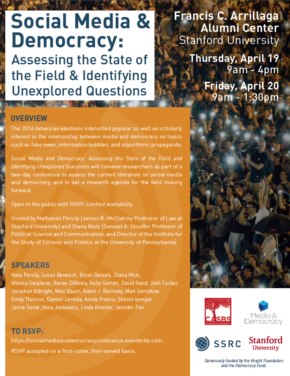
Social Media and Democracy: Assessing the State of the Field and Identifying Unexplored Questions

Confronting Algorithms of Oppression
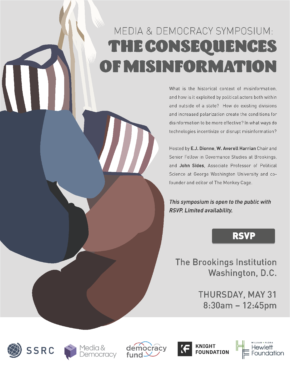
The Consequences of Misinformation



